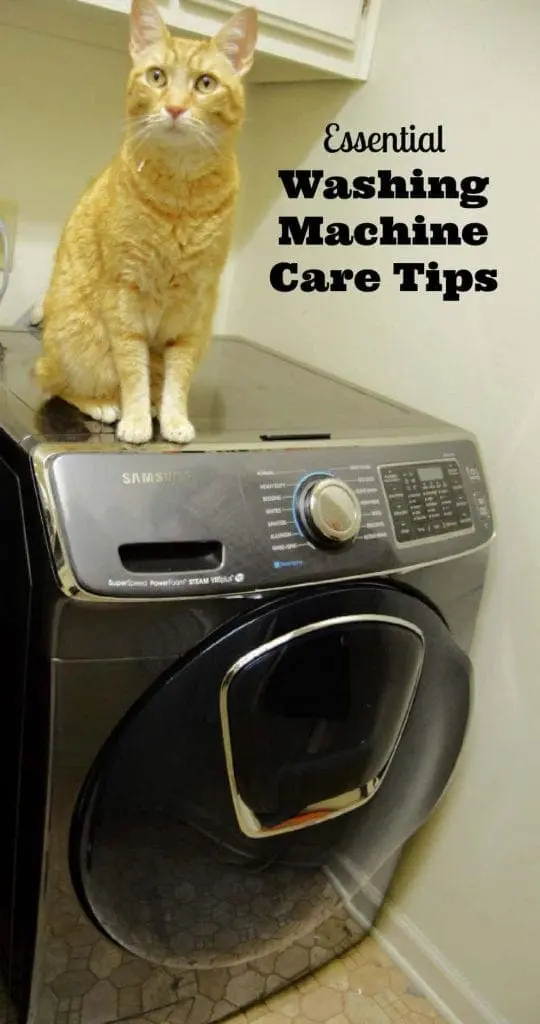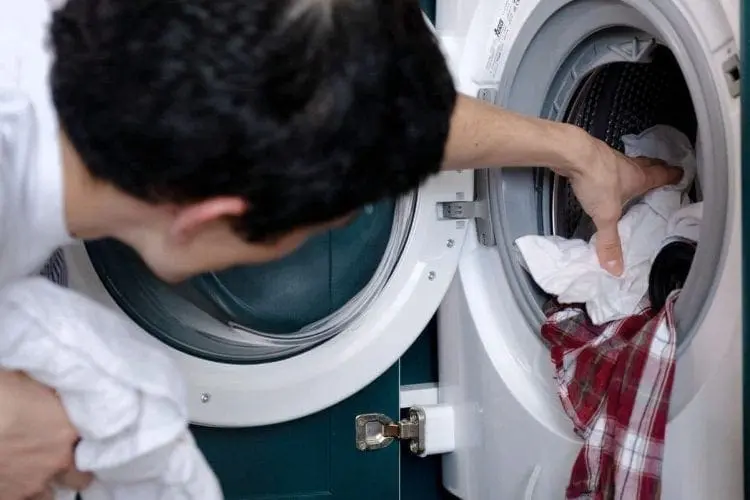Washing machines are without question one of the most useful inventions for the home, so it’s no wonder they’ve become a staple in the average U.S. household. However, they do use up a lot of energy and are also prone to breaking down if not properly maintained. The National Park Service’s entry on laundry practices states that the average residential washing machine uses 41 gallons of water per load and a dryer makes up for around six percent of the home’s energy use. Here are some essential washing machine care tips to help you save money and energy.

Maintenance Tips: How to Make Your Washing Machine Last Longer and Save Energy
A washing machine and dryer can be quite a costly home investment. In order to make these this appliances last longer, it’s good to put energy-saving practices into use. Not only do they lessen the utility bill, but they also help the environment and lengthen the lifespan of the machine. These tips will help to extend your washing machine’s years, conserve energy, and save money.
Check for Leaks
Washing machines are prone to wear and tear because of how often they’re used, and a common outcome is often a leak. If you believe your machine is leaking, HomeServe’s guide to fixing common washing machine problems suggests looking at the hoses and taps at the back of the appliance first. These are also known as the isolator valves, which could become loose or damaged overtime. These can also cause internal problems that damage other components. It would also be wise to look at water pooling or foam leaks. These can happen from dirty seals or torn pumps. Leaking water will not only lead to further damage but will increase the amount of water used for each wash.
My plumber told me that the most common leaks he gets called to fix are old rubber drain hoses that split with time. He always suggests using a braided stainless steel washing machine hose because for about $15, you can prevent a lot of damage. Here is my affiliate link to those hoses on Amazon.
Keep it Clean
Though one might think that the inside of a washing machine will be inherently clean, it’s still important to actually deep clean it. After every wash, remove any residue left behind, wipe it down, and make sure it’s dry. You should also regularly check the filter for dust, stray materials, and clogs. This will prevent further maintenance issues down the line. A clogged machine will use more electricity to run, which will increase your carbon footprint.
You washer manual will provide detailed instructions for how you can check for clogs in the troubleshooting section. My best top loading washing machine cleaning tip is that many of these machines have a self cleaning cycle. Use it at least once a month. My appliance dealer told me that many brands will not even honor their warranty if you haven’t been using the cleaning cycle! If you have a washer without a self cleaning cycle, you can buy washing machine deep cleaning tablets to use once a month.

Mind the Capacity
Do not overload your washing machine, as this can cause permanent damage to the inner components. Overstuffing you laundry will likely not get your laundry cleaned properly either. Your machine will have an ideal load listed in the instructions. If you hear loud noises during the wash, this is an indicator of an unbalanced load.
Leave the Door Open
After use, leave the washing machine’s door open for about half an hour. This will make sure it dries inside and is safe to do a quick wipe-down. Doing this helps prevent moisture from building up, stops mold and bacteria growth, and allows all the components to dry. This lessens the likelihood for the parts to get damaged, and ensures that you don’t waste any washes by ending up with dirty residue.
Save the Dryer
If your washer machine comes with a dryer, it will do you some good to avoid using it unless necessary. Dryers consume a lot of electricity and are one of the most common causes of house fires. Lint build-up and broken thermostats are a common cause. The U.S. Fire Administration’s fact sheet on dryer fire safety shows that the most common cause of a fire is a failure to clean the dryer. If you have the time and space for it, consider hanging your laundry out to line dry.
How To Buy A Washing Machine Tips
Finally, if you need to buy a new washing machine, here are a few tips to help you pick the best one for you.
- Determine Your Needs: Consider the size of your household and the amount of laundry you do. Larger families may need a high-capacity machine, while smaller households might benefit from a compact model.
- Choose the Right Type: Decide between a top-loading or front-loading machine. Top-loaders are often more affordable and user-friendly, while front-loaders are energy-efficient and gentler on clothes.
- Energy and Water Efficiency: Look for the Energy Star label or other efficiency ratings. Efficient machines save money on utility bills and are better for the environment.
- Consider Wash Features: Check for features like quick wash, sanitize cycles, steam cleaning, or specialty cycles for delicates or heavy-duty loads.
- Noise Level: If your washing machine will be near living spaces, opt for a model with a low decibel rating for quieter operation.
- Space and Placement: Measure your laundry area to ensure the machine fits comfortably, including room for doors to open and connections to be made.
- Budget: Set a budget that balances upfront costs with long-term savings from energy efficiency.
- Reliability and Warranty: Research brands with good reputations for durability and customer service. A solid warranty is a good indicator of reliability.
- Smart Features: If you value convenience, look for smart washers with Wi-Fi connectivity, allowing you to monitor and control the machine remotely.
- Compare Reviews: Read reviews from verified customers to get insights into real-world performance and potential issues.
Conclusion
Maintaining your washing machine is essential to ensure it functions efficiently, lasts longer, and delivers clean clothes every time. Simple habits like using the right detergent, not overloading the machine, and performing regular cleaning and maintenance can prevent issues and costly repairs. By following these tips, you not only protect your investment but also save time, energy, and water, contributing to a more sustainable laundry routine.
Since 80% of households in the United States own a washing machine, following the above practices can significantly lessen the total energy usage and emissions from residences. For any homeowner, it also helps to save on bills and repairs. For other tips on green living, check out these other guides in our Eco-Friendly Tips section.
Related Posts:
Why You Should Start Washing Clothes In Cold Water
